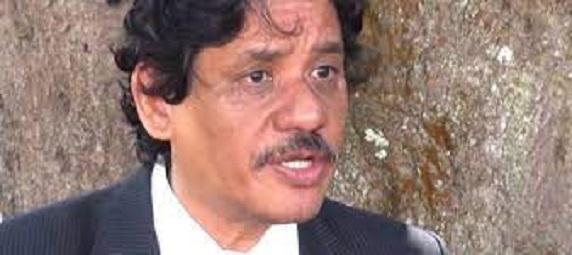Africa-Press – Mauritius. Consensus-building consultations on electoral reform are expected to begin in the coming days. However, it does not seem that this will be achieved in view of the political interests at stake for the main political parties in the country.
What do you think? Jocelyn Chan Low: It is almost certain that the discussions will end in a deadlock given the criticisms and positions taken by the various opposition groups present in the National Assembly.
The postures and statements of each other are totally irreconcilable. The PMSD, for example, is for the maintenance of the BLS and the return to the ethnic census.
For the MMM, the proposed proportional dose is just bogus. The PTr is downright hostile to all of the government’s proposals. The MP and the independent deputies also issued harsh criticisms against the proposals contained in a very preliminary government document.
* Beyond the embarrassment posed by the constitutional complaint of Resistans ek Alternativ against the declaration of ethnicity in elections and the “ruling” of the United Nations Human Rights Committee, one wonders whether the main political parties in the country and the MSM really want to reform our electoral system.
Basically, don’t they all want the status quo? It should be stressed that it is always difficult to implement any electoral or constitutional reform, moreover in Mauritius where it must be endorsed by a three-quarters majority of the National Assembly, unlike other Commonwealth countries where a two-thirds majority would have sufficed.
This inherent conservatism of the system is a legacy of the British colonial authorities who wanted the major clauses of the Constitution, particularly with regard to the rights and political representativeness of minorities in a multi-ethnic country, to be entrenched. Admittedly, the MMM-PSM government by abolishing the ethnic census in 1982 made the system difficult to maintain.
But I remember perfectly that at the time the management of the MMM had rejected the request of the thousands of activists who took to the streets and relayed by backbenchers to abolish the Best Losers System by stressing that the 60-0 government had not no mandate to do so.
And the PMSD is absolutely right to maintain that what remains of L’Alliance Lepep is also in no way mandated to modify BLS, because the electoral platform on which it was elected clearly says that it would maintain it.
And, according to some echoes, some members of the Government are not very comfortable with this proposal, which is likely to be very unpopular in certain circles.
As for the dose of proportionality obviously proposed if it is to restore the difference between the winners and the losers of the “First Past The Post”, we are swimming in nonsense and the most absolute contradiction.
The question then arises whether the Government really wants electoral reform or whether all this is just a posturing for legal, political or even diplomatic needs.
And as for the law on the financing of political parties, let’s not talk about it. Some no doubt have vested interests so that any attempt to put an end to money politics is scuttled.
* By the way, in view of the balance of power that is presently present on the political spectrum and it would seem that this will continue to prevail until the next general elections, the current electoral system should play to the advantage of the MMM with political conditions similar to 1976, right?
The answer to your question can only be nuanced. It is true that in a three-way struggle, with the PTr and the MSM sharing the same electorate and the PMSD considerably deflated since the partial at number 18, if the MMM manages to recover a large part of its traditional electorate, it could theoretically win the game.
But the electoral boundaries or at least the current delimitations of the constituencies whose flaws and inequities the PMSD rightly denounces will work against the party.
* We can actually say that things are getting clearer.
They are becoming clearer and so we must take seriously the speeches of the leaders of the PTr and the MMM when they say that they are going to appear before the electorate, alone – without any political crutches?
Obviously, and I always maintain it, that the game of alliances is currently completely blocked; not for ideological reasons as in the 1970s but for dynastic and personal reasons.
The MedPoint affair on the one hand and the arrest of Dr. Navin Ramgoolam for various alleged offenses on the other, has created such a chasm between the MSM and the PTr that any mending seems to us to be in the realm of the impossible.
With so many grudges and personal vengeance to satisfy, it is hard to see these political leaders working together. As for the MMM, despite its practice of realpolitik, it has undoubtedly learned lessons from the 2014 elections.
The electorate of the MMM is fundamentally hostile to alliances or misalliances. Even the prospect of a Paul Bérenger Prime Minister for five years and a parity of candidacies with the PTr could not convince the bulk of the purple electorate to vote in favor of the PTr-MMM alliance.
In fact, activists want the party to go to the elections alone in order to regain its identity and its former strike force. Of course, the PMSD and the existing small groups such as the MP or others in the making find themselves in troubled waters.
They will have to settle for crumbs and apply under the banner of the PTr, for example, if ever this party wants to accommodate them. And it is not certain that this is the case.
* A two-way fight, opposing the PTr to the MMM, has the advantage of bringing more clarification to the political thing. But here we are again with the country breaking in two – like in 1967. What do you think?
But it won’t be a fight of two but of three, or even four! Above all, the resistance capacity of MSM to PTr should not be underestimated. It is true that the decision to postpone the village elections betrays a certain dismay in the face of the rural electorate within this party.
So it will not be a 1983-style scenario where the country really experienced a break-up like in 1967. And then a lot will depend on the composition of the front bench of the various parties that will compete in the next election as well as the main theme of the electoral campaign.
* Is this what the electorate of the PTr and in particular that of the MMM desire ardently? Paul Bérenger will therefore remember the reasons for the high abstention of activists in December 2014? The electorate of the PTr especially wishes to drive out of power the MSM of Pravind Jugnauth whom they consider a usurper.
As for the electorate of the MMM, they especially want to rediscover the culture and militant practices of yesteryear – that is to say a real commitment to the ti-dimounn, in favor of meritocracy and above all for a real moralization of public life in Mauritius.
He would like to put an end to the reign of these predatory politicians of the State who, through their clientelism and politics of cronies, create categories of disadvantaged people in the country. Paul Bérenger understood this well.
And that is why not only was the decision made to go alone to the next general elections but above all to renew, rejuvenate and further feminize the party by attracting competent people, close to the field and above all suspicion.
* The MMM is preparing seriously, as we can see, with the recruitment of valid executives which is being done now and in the months to come.
Is it to embody renewal? Sheila Bunwaree understood this well when she joined the MMM, and others will certainly follow her example. In the current system, political renewal can only take place through a renewal of the traditional parties.
To believe in a third force that will emerge is to condemn oneself to fruitless political action. Under current conditions, this is downright political infantilism!
And the MMM has not been marred by political and financial scandals. Its functioning, despite criticism coming mainly from defectors, is relatively democratic.
And the ideological fundamentals of this party are still relevant. All of this together can effectively embody the renewal to which a large number of Mauritians aspire.
* Paul Bérenger knew or will know how to overcome the small crises and dissidences that the MMM has known since December 2014 and which gave birth to the Patriotic Movement and recently again the Platform for a new MMM?
The MMM is an institution and the individuals who leave – with the exception of SAJ who used and thoroughly abused the state apparatus at his disposal – are condemned either to become defectors or to create small groups with more resonance in the media and in the electorate.
And these individuals are condemned to lose their deposit if they ever stand alone in the elections. This is the harsh lesson that can be drawn from the political history of the country.
Basically, these dissidences which, at first sight, seemed to be a prelude to the erosion and collapse of the MMM, appear to us as a necessary evil for the emergence of a totally rejuvenated and renewed MMM, and which stands today to fill the void left by disillusionment with rotting political morality; and this is, in large part, linked to the practices and political culture of other traditional parties.
* The Militants will therefore follow Bérenger, and no one else? For the moment and probably for a long time to come, it is Paul Bérenger who embodies the MMM.
No one else has sacrificed so much for the party and today, when in Mauritius as in other countries, political moralization is at the center of political debate, he is one of the few politicians with the clean hands after such a long political career.
* Not even his daughter, you say? What will become of the MMM without the Bérenger that activists have known since the 1970s?
Joanna Bérenger is highly esteemed by the base of the MMM. The activists voted for her in the election to the central committee with good reason. In fact, it embodies not only pure militancy but also renewal.
And around her, there are still a large number of young people, executives and intellectuals who have joined the party. The MMM, like the PTr, are institutions that have the ability to reinvent themselves in difficult times to bounce back better.
* Whoever could aspire to take up the torch from Paul Bérenger – Steven Obeegadoo -, should have shown patience, like Arvin Boolell in the Labor Party, although the latter himself does not know if this patience is worth the candle.
That’s it ? Personally, I never believed that my friend Steve could have taken over the reins of MMM. Admittedly, he entered the MMM out of conviction, but a party like the MMM needs a man in the field in the leadership and not a technocrat who is difficult to access for his constituents.
Arvin Boolell, on the other hand, is an outstanding local deputy but he is also a party loyalist and will not try anything that could undermine the PTr’s chances of winning the next elections.
* We will come back to Arvin Boolell later, in the meantime tell us: is it not a risky bet for Paul Bérenger and the MMM to appear alone before the electorate in 2019 or 2020?
I do not believe that. On the other hand, if the MMM contracts an alliance with the MSM, the synergy between the electorate of the MMM and the MSM will not be achieved.
The bulk of the MMM electorate may abstain, or they may even go and vote for another party. In addition, as in 2005, a power-sharing arrangement between Paul Bérenger and Pravind Jugnauth will greatly favor the PTr in the ten rural constituencies.
But a three-way struggle opens up the prospect that no party will ultimately win an absolute majority. The MMM, in this case, will be able to negotiate a post-election agreement so that there is a government to lead the country.
And it is hard to see the PTr and the MSM working together. * What about the PTr and Navin Ramgoolam? Risky bet too, or do you objectively see the PTr having a better chance than the MMM of winning the next legislative elections?
Contrary to what one might have imagined in January 2015 after the arrest of Navin Ramgoolam, following the affair of the safes and Roches Noires, the latter was able to bounce back politically, thus demonstrating his great political resilience and his ability to leadership.
While facing lawsuits in court and while being out of Parliament, he positioned himself as the main challenger to Pravind Jugnauth and the MSM. Fear of a defeat to the Labor Party forced the MSM to abstain from participating in the by-election at number 18, a key constituency for any party that dreams of taking or keeping power.
Similarly, Pravind was forced to tolerate the escapades of several of his deputies who were terrified of facing the PTr in a by-election. And this is confirmed with the postponement of village elections.
That said, the PTr still has a very big effort to make because the credibility of Navin Ramgoolam has been quite shaken by the various cases before the judiciary.
It is true that the electorate has a short memory and that the escapades and scandals of the current regime have made people forget the failings of the previous regime.
But there is still a large section of the electorate who are still reluctant to trust Navin Ramgoolam again. As for the MMM, it will fully play the card of renewal and moralization of public life.
And this strategy can pay off in the sense that his adversaries, namely the MSM and the PTr – by tearing each other apart on this issue – will further fuel his campaign.
* However, must the traditional electorate – the electoral base which has been the strength of the PTr for decades and a fringe of which has supported the MSM from time to time – decide to vote useful, despite the legal hassles of Navin Ramgoolam and all the propaganda that will be directed against him and the PTr in the coming months, right?
The support of the electorate for the Alliance Lepep was only temporary. Moreover, the presence of SAJ, Vishnu Luchmeenaraidoo, Xavier Luc Duval and even the presentation of Ameena Gurib-Fakim as future President of the Republic, had something to do with it.
But the disappointment is great today. There was deception on the goods. However, much will depend on the election campaign itself, given the large number of undecided.
And, unfortunately, money politics risks influencing the outcome of elections in certain marginal constituencies. * Winning the next general election is one thing.
Governing the country is something else. And if 1976 were to happen again, Labor would probably have to look for an ally or allies. What do you think?
Obviously, governing a country as complex as Mauritius requires a broad consensus, especially since in a three-way fight, with 35% to 40% of the votes, we can win the elections.
A post-election coalition is in order. Is this why the dissidents of the MMM find themselves with an end of inadmissibility in their attempt to negotiate with the PTr?
* Moreover, we see Xavier Duval’s PMSD actively preparing for the post-Bérenger period: its recent challenges to electoral boundaries and its demand for a new ethnic census are part of a particular strategy, aren’t they? not ?
The PMSD has always presented itself as the party of the general population. In 1982, Sir Gaëtan Duval had even demanded from Sir Kher Jagatsing a certificate to this effect before opening negotiations with the PTr.
But XLD is seriously mistaken if he believes that the MMM will collapse in the post-Bérenger period. The last MMM convention clearly demonstrated that the next generation is there and that the renewal of the MMM is underway.
* We know that without an alliance with a major party, the MSM will not be able to envisage a return to the Hôtel du Gouvernement in 2020.
A new alliance with the PTr led by Navin Ramgoolam is to be excluded, and its position on electoral reform n is not made to enthuse the MMM. But we don’t see Pravind Jugnauth packing his bags either after the next legislative elections.
Is it the long term that interests him? The MSM has very few choices. The events of January 2015 will haunt political life in Mauritius for a long time to come.
Certainly, a reconstitution of the Alliance Lepep with the return of XLD to the fold is not to be ruled out, but XLD will have to face a problem of credibility.
The MSM will be able to join the dissidents of the MMM but with the defectors, it will be too full for some in the MSM. And besides, what is the electoral weight of these dissidents?
Nevertheless Pravind Jugnauth bets a lot on the realization of major projects such as the Metro Express, a positive outcome of the Medpoint case before the private council, the success of the 2019 Island Games, an all-out recruitment policy in the public service and other popular measures to restore the image of the MSM.
In my opinion, he is playing squarely in the short term and he will do everything to win these elections against a vengeful PTr or in the case of a three-way fight, he wants to find himself in a position to negotiate with perhaps the MMM to stay in power in a post-election coalition.
For More News And Analysis About Mauritius Follow Africa-Press







